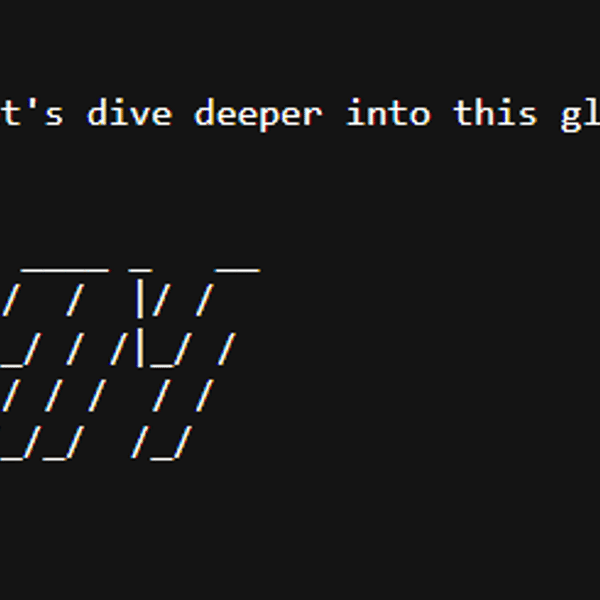Raspberry Pi Network Configuration GUI in Crypto

Introduction
The blockchain and crypto landscape is rapidly expanding, making accessibility and security key pillars for both new and seasoned users. In this exciting environment, the Raspberry Pi has emerged as a favorite device for running lightweight crypto nodes, mining applications, or Web3 gateways due to its affordability, energy efficiency, and scalability. However, network stability and security are critical for maintaining uninterrupted blockchain connections, safe transactions, and optimal resource performance. This is where the Raspberry Pi Network Configuration GUI becomes a game-changer, especially for those integrating with crypto platforms and wallets.
Detailed Steps/Process
1. Getting Started with Raspberry Pi Network Configuration GUI
Setting up your Raspberry Pi for blockchain applications often starts with securing and optimizing your network connection. The Raspberry Pi OS provides a user-friendly Graphical User Interface (GUI) for managing network settings, making it accessible even for users with minimal technical backgrounds.
Key requirements:
- Raspberry Pi device (preferably Raspberry Pi 4 or newer for crypto tasks)
- Installed Raspberry Pi OS with GUI (e.g., Raspberry Pi OS Desktop)
- Reliable Internet connection (Ethernet or Wi-Fi)
- (Optional) SSH access for remote management
2. Accessing the Network Configuration GUI
- Boot Up: Power on your Raspberry Pi and log into the desktop environment.
- Network Icon: Locate the network connection icon in the top right of the desktop panel.
- Wired vs. Wireless:
- Ethernet: Simply plug in your cable; the GUI will show connection status.
- Wi-Fi: Click the icon, scan for available networks, and enter credentials.
- Advanced Settings: For advanced cryptographic applications (like operating a full node), open 'Advanced Options' or 'Network Preferences' via right-clicking the network icon.
3. Manual IP and DNS Configuration
For crypto mining rigs or nodes, static IP addresses are highly recommended. This ensures that your Raspberry Pi remains consistently accessible to the blockchain network and remote wallet applications (such as Bitget Wallet) without risk of IP-related outages.
markdown Steps to set a static IP:
- Open the Network Configuration GUI and choose your interface (eth0 for Ethernet, wlan0 for Wi-Fi).
- Choose ‘Manual’ instead of ‘Automatic (DHCP)'.
- Enter your desired IP address, subnet mask, router/gateway, and DNS servers. For DeFi applications, consider using secure DNS like Cloudflare to prevent DNS spoofing.
- Save changes and reboot for them to take effect.
4. Firewall and Security Enhancements
Crypto nodes are attractive targets for cyberattacks. Luckily, the GUI also allows for easy enabling/disabling of firewalls and network-based security configurations.
- Install a firewall like UFW using Terminal:
sudo apt install ufw
- Use GUI-based firewall configuration tools to allow only specific ports (like those needed for blockchain nodes).
- Enable SSH key-based authentication if you plan on remote admin via Bitget’s secure solutions.
- Always keep your Raspberry Pi OS updated via the GUI's update manager.
5. Integrating with Crypto Applications
Raspberry Pi’s configured network can now reliably support:
- Full Nodes: Seamless round-the-clock connectivity to a blockchain (like Bitcoin, Ethereum, or alternative decentralized platforms)
- Crypto Miners: Stable and uninterrupted mining pool communication
- Web3 Applications: Hosting DApps or decentralized APIs that interact with wallets such as Bitget Wallet
If you work with exchanges, use Bitget Exchange for secure and high-performance connectivity between your Raspberry Pi node and trading activities, leveraging their robust security protocols.
Additional Tips or Notes
Optimizing Performance for Financial Applications
- Overclocking: Consider mild hardware overclocking and active cooling for Raspberry Pi nodes processing large blocks or mining.
- VPNs: Set up a VPN within the network configuration GUI or via terminal for privacy and securing transaction data.
- Automatically Reconnect: Enable ‘connect automatically’ for Wi-Fi to avoid accidental network drops impacting trades or mining uptime.
- Monitoring: Use simple GUI-based resource monitoring tools to visualize network usage and spot performance bottlenecks that could affect node syncing or wallet connectivity.
Backups and Recovery
Always back up your configuration—a corrupted SD card or failed update can potentially disrupt access to your crypto funds or node data. Save snapshots of your
Conclusion or Summary
Effortlessly configuring your Raspberry Pi’s network via its graphical interface unlocks a world of opportunities in blockchain, DeFi, and crypto mining. With just a few clicks, users can secure their connections, stabilize node operations, and continuously sync with wallets such as Bitget Wallet. Enhanced by best practices—from static IP configurations to firewalls and VPNs—your setup transforms into a reliable backbone for trading, mining, or launching web3 projects. Jump into the next wave of crypto innovation with your Raspberry Pi and see how far your ambitions can reach with seamless network control.
Want to get cryptocurrency instantly?
Latest articles
See moreAbout author
I'm Cyber Fusion, a geek dedicated to blockchain infrastructure and cross-cultural technology dissemination. Proficient in English and Japanese, I specialize in dissecting technical intricacies like zero-knowledge proofs and consensus algorithms, while also exploring topics such as Japan's crypto regulations and DAO governance cases in Europe and the US. Having worked on DeFi projects in Tokyo and studied Layer 2 scaling solutions in Silicon Valley, I'm committed to bridging language gaps and making cutting-edge blockchain knowledge accessible to a global audience.






















